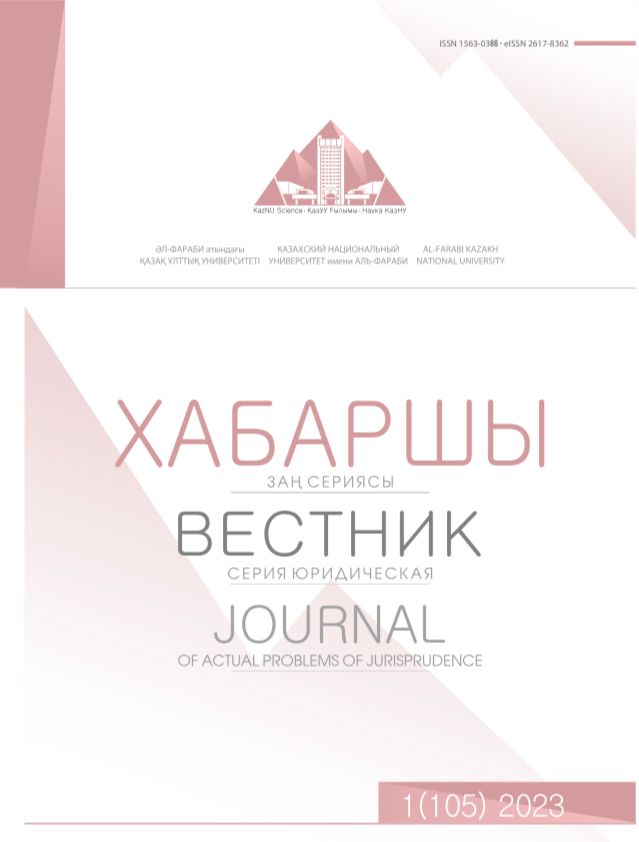Religion, morality, law, and abortion policy
DOI:
https://doi.org/10.26577/JAPJ.2023.v105.i1.01Abstract
The abortion controversy often affects both religion and politics. Abortion is a highly politicized issue, as governments often seek to amend abortion laws according to elected leaders' preferences or the electorate's mood. However, few studies establish a causal relationship between leader preferences and abortion outcomes. In this article, we reveal whether the religious affiliation of legislators affects the number of abortions in the districts they elect, provided their party affiliation.
The question is why the debate about abortion does not stop, why it becomes an arena of intense struggle not only around changes in the family, where politics is at stake.
Regulation of abortion was not widespread at the time of the republic's founding, but it became pervasive within the next century. By the twentieth century, abortion had become strictly regulated throughout the nation. As time progressed, numerous states relaxed their laws in response to pressure for political change.
Typical grounds for allowing abortion included pregnancies that presented a danger to the mother's life, resulted from rape or incest, or carried the likelihood of congenital disabilities, to establish a woman's freedom to choose as a fundamental national right, advocates for a woman's freedom to choose expanded their plan from the legislature to the courts.
A natural person explains this by a lack of political commitment. We investigate the role of preferences of legislators around the world. In particular, since Muslims express more tremendous opposition to abortion than Hindus, we ask whether Muslim legislators are more effective in reducing sexual intercourse.
Keywords: abortion rights, politics, liberal views, conservative views, embryo.













